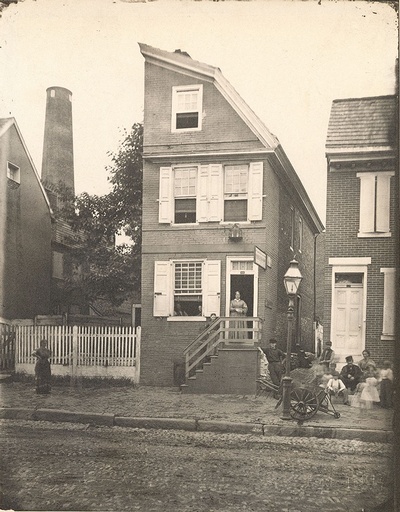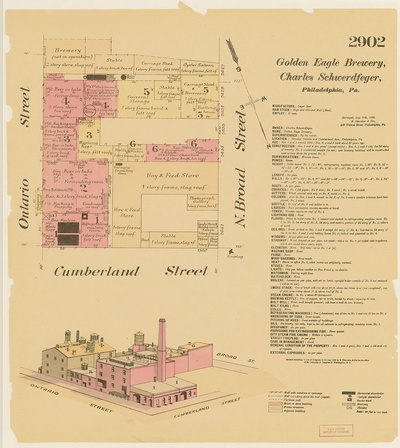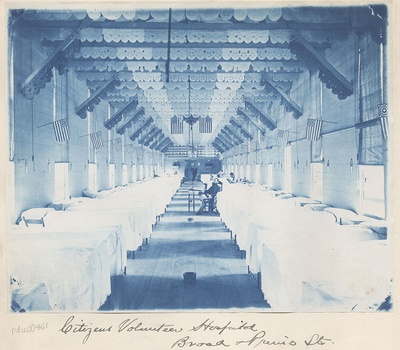Philadelphia History from Home: Digital Access to Primary Sources
By Caitlin G.You may have heard the recent news that Free Library cardholders now have access to ProQuest’s Historical Black Newspapers, featuring coverage of The Philadelphia Tribune (the oldest continuously-published Black daily!) from 1912-2001. (More recent Tribune articles are also available.)
It’s just one way that the Free Library supports primary source literacy, but even without coming to visit us in person, we can help you scratch that primary source itch.
What are primary sources? They’re first-hand accounts of an event or a topic. It doesn’t mean old: someone’s Twitter thread documenting their time at a protest march this summer is a primary source! Primary sources can complement history textbooks and broaden our understanding of an event. Library staff work closely with area schools, National History Day, the Teaching with Primary Sources (TPS) Collective, the Digital Public Library of America (DPLA), and other groups to help support anyone interested in learning about (or teaching with) primary sources. Here are some places to start when thinking about local primary sources, all available to you online with nothing more than a library card:
Local Newspapers
Newspapers count as a primary source where they quote witnesses or individual perspectives on an event or a topic. The Free Library provides digital access to a huge variety of Philadelphia newspapers—current and historic—along with other magazines and journals. Some highlights: The Philadelphia Tribune (1912-2001; 2008-present), the Philadelphia Inquirer (1860-2001 and 1981-present), the Philadelphia Public School Notebook (2003 - present), and the Pennsylvania Gazette (1736-1775). You can also search broadly across newspapers here in Philadelphia, or even worldwide, using some of our databases (some places to start: young kids may like InfoBits, students in high school can find great sources in Gale in Context, and NewsBank includes newspapers from all over the world from the 1700s to today).
Virtual Classes with Free Library Librarians
Did you know that librarians from the Free Library’s Special Collections department are ready (and eager) to welcome your group to our collections via Livestream? We have more than a million objects covering the last 4000 years of human history and we can work with you to create a remote visit for your group's particular goals. We can coordinate a cross-departmental visit or you can arrange a deeper dive into a single collection—reach out to us directly to discuss your needs!
Digital Collections
With more than 50,000 images from Free Library Special Collections, Digital Collections includes a huge variety of materials. Of particular interest to anyone looking for local history is the Map Collection online. It includes an interactive map tool that lets you pick maps from the 1800s and 1900s to overlay on the Google Maps of today. You can also browse or search more than 5,000 scanned maps for particular Philadelphia neighborhoods (Southwark in 1848, anyone?). Another major source of local primary sources is Historical Images of Philadelphia, which draws on the Philadelphiana in the Print and Picture Collection. You can also browse this by neighborhood! (Southwark in 1869, this time with half-house)
Explore Genealogy
The Free Library has an entire section of our Explore Topics devoted to the breadth of resources that are important to patrons looking to do family research. Browse the booklists and get some new reads (pick them up curbside!) or explore some of our blog posts and podcasts about genealogical research. Among the digital resources you can access with nothing more than a library card is America’s Obituaries & Death Notices, but you can also find links to Philadelphia-area organizations that have their own important genealogical collections.
Primary Source Sets
If you’re specifically looking for ways to incorporate more primary sources into curriculum, check out the primary source sets compiled by the Digital Public Library of America (DPLA). The Free Library contributes our digital collections to the Pennsylvania hub of the DPLA and these primary source sets already include teaching guides. There are dozens of sets bringing together primary source digital images from across the country, from Ida B. Wells and Anti-Lynching Activism to ACT UP and the AIDS crisis.
Primary sources enrich our historical narratives and help to build cultural understanding based on the variety of our experiences. We here in Special Collections are excited to explore with you how we can help support your curiosity. Let us know what you need!
Have a question for Free Library staff? Please submit it to our Ask a Librarian page and receive a response within two business days.



